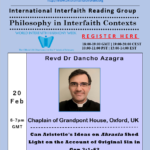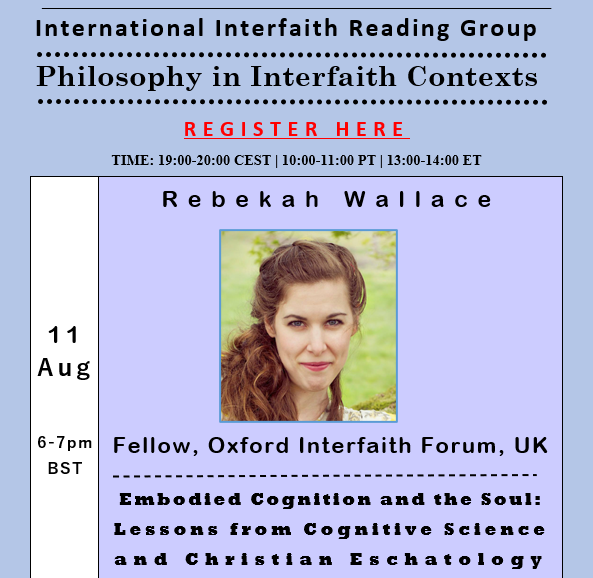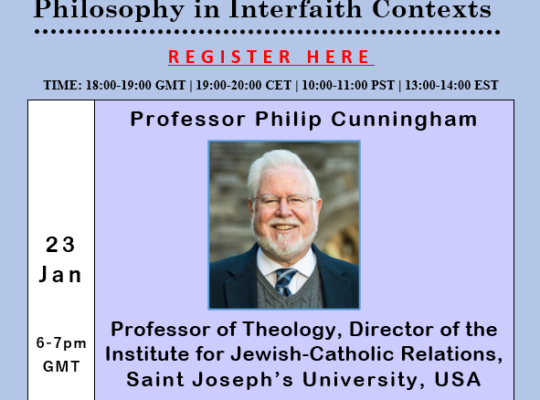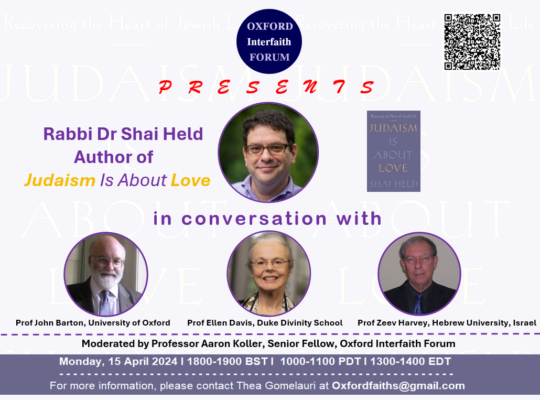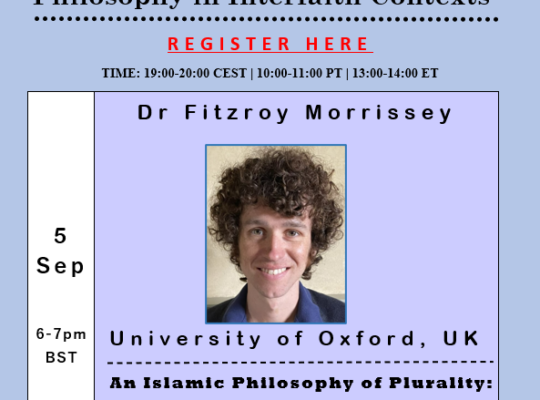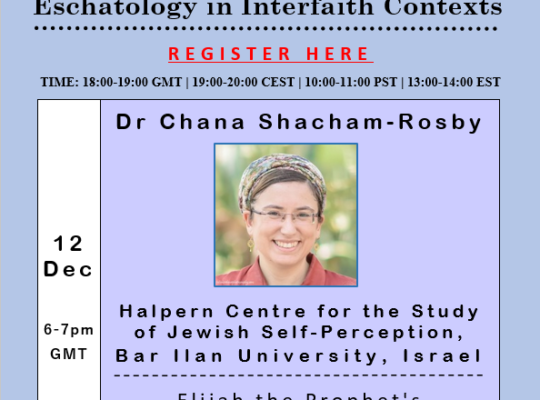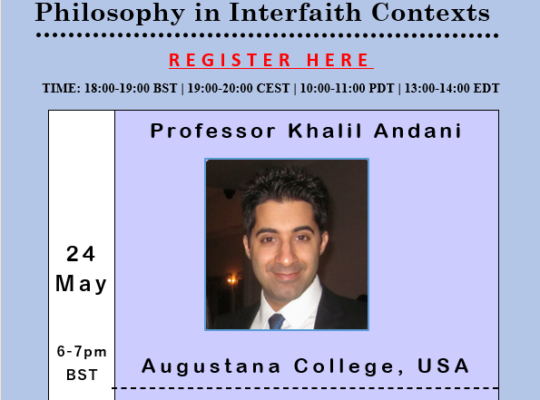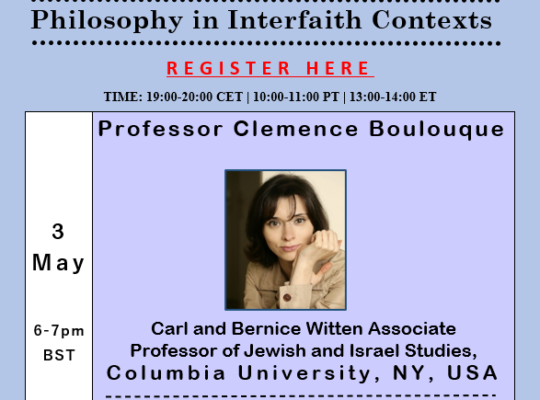11 August
We are delighted to welcome Rebekah Wallace, Fellow of the Oxford Interfaith Forum and Coordinator of the International Interfaith Reading Group on Science and Religion in Interfaith Contexts, to lead a session of the Philosophy in Interfaith Contexts Reading Group.
Christian eschatology relies on certain claims about the afterlife which, according to many, require a dualist view of the soul. For example, if the soul does not live on after the death of the body, how is it possible to receive eternal reward or punishment? Even if, as Christian doctrine claims, there is a resurrection of the body, this does not explain continuity of identity between death and bodily resurrection. Given that the mind and soul are often used synonymously, it has equally been claimed that a non-dualist philosophy of mind threatens Christian doctrines of eternal salvation and redemption. However, Embodied Cognition is one such non-dualist paradigm in philosophy of mind which is gaining increasing support in the cognitive sciences. Embodied Cognition states that the mind is not a separate substance, but rather an emergent property of the body in its interaction with the environment. This talk begins with an exposition of the field of Embodied Cognition and its significance for Christian theology and eschatology in particular. It concludes by proposing that, although Embodied Cognition offers a challenge to substance dualist accounts of the mind, it is supportive of more traditional accounts of the soul, such as those of hylomorphism as it was appropriated from Aristotle through Thomas Aquinas.
Here are the details of this fascinating session.
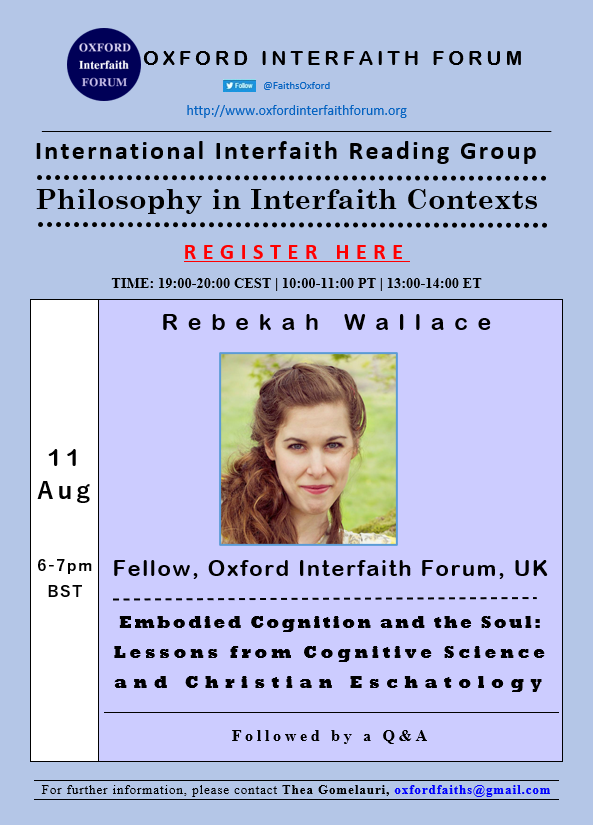
Topic: Embodied Cognition and the Soul: Lessons from Cognitive Science and Christian Eschatology
Speaker: Rebekah Wallace, Coordinator of the International Interfaith Reading Group on Science and Religion in Interfaith Contexts, Oxford Interfaith Forum, UK.
Chair: Revd Dr Greg Cootsona, California State University and BioLogos Advisory Council, USA.
Date: 11 August, 2022
Time: 18:00-19:00 BST | 19:00-20:00 CEST | 10:00-11:00 PT | 13:00-14:00 ET
Venue: Online
After registering, you will receive the Zoom email containing information about joining the meeting.
If you do not see the email in your inbox, PLEASE check your SPAM and JUNK folders.
If you would like to join the Philosophy in Interfaith Contexts Reading Group, please sign up here.
If you missed this session, a recording is available below:
Related Sessions
- Book Launch: Judaism Is about Love
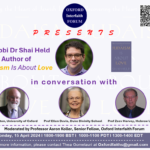
- When Salafi Muslims Meet Evangelical Christians: A Hopeful Dispatch from the United States
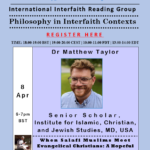
- The Ties That Bond Us: Differences of Sacred Values in Interfaith Organizing
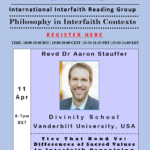
- The Varieties of Atheism: Connecting Religion and Its Critics
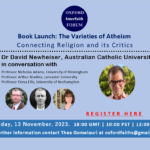
- Interfaith Just Peacemaking: Christian and Muslim Resources for Restorative Justice

- Making Sense of “GOD”: What God-Talk Means and Does
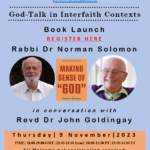
- How Islamic Philosophy Rescues Classical Theism in the Philosophy of Religion
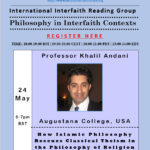
- Holy Envy: Faith, Truth and Interfaith Understanding
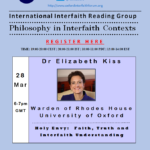
- Doing Comparative Theology Through a Decolonial Lens
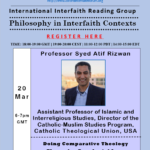
- A Jewish Philosophical Approach to Interfaith Relations: Re-reading Genesis According to Rabbi Jonathan Sacks
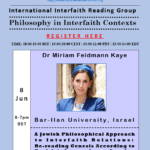
- Matteo Ricci and the Problem of Religious Translation
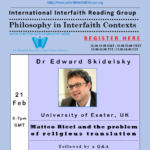
- Human Equality and Abrahamic Monotheism
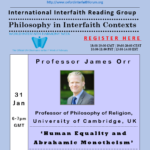
- Moral and Spiritual Courage: A Muslim Perspective
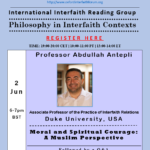
- A Religious Crucible: Elia Benamozegh (1823-1900), Jewish Universalism and Interreligious Encounters
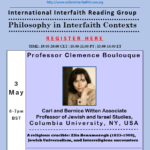
- Reaching beyond Metaphysics: God of Love, God beyond Being in Two Traditions
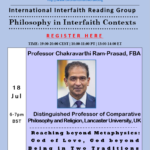
- Embodied Cognition and the Soul: Lessons from Cognitive Science and Christian Eschatology
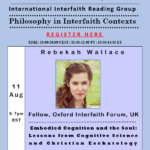
- An Islamic Philosophy of Plurality: Shah Waliullah of Delhi (1703-62) on the Unity and Diversity of Humanity
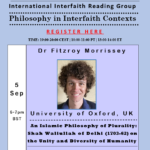
- Holistic Wisdom from a Chinese Perspective
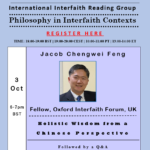
- HMD 2023: Development in Catholic Teaching about and Relations with Jews since World War II
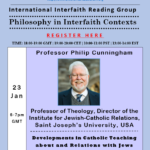
- Historical Suffering and Agency: Alternative Conceptions of Power in the Jewish Philosophical Thought of Hermann Cohen
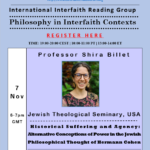
- How Christians Can Learn from the Devotional Poetry of Hindu South India
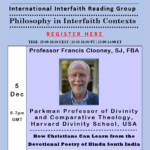
- Can Aristotle’s Ideas on Akrasia Shed Light on the Account of Original Sin in Gen 3:1-6?
